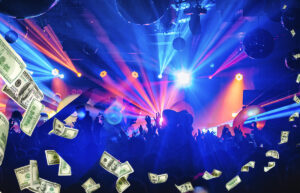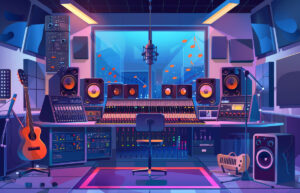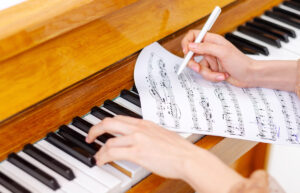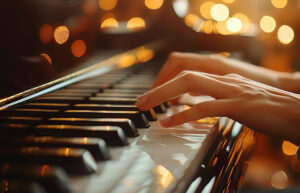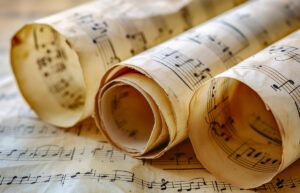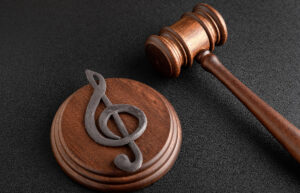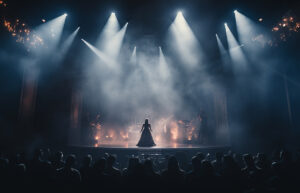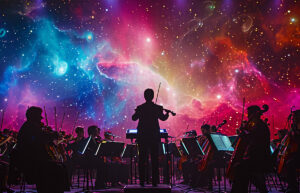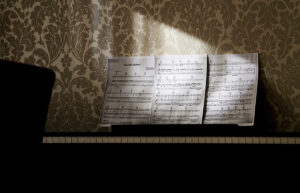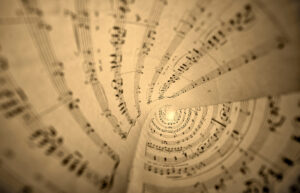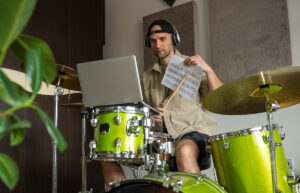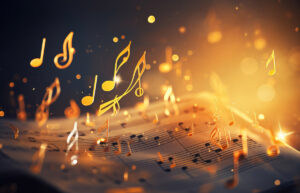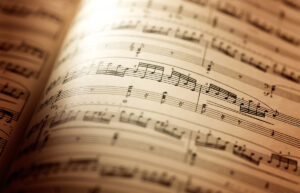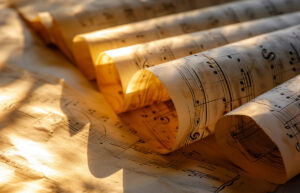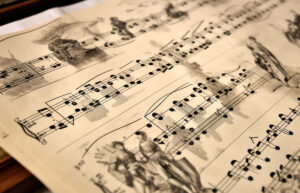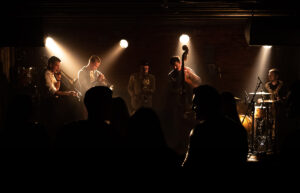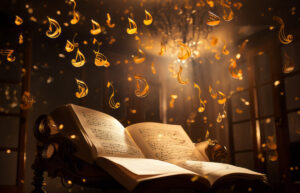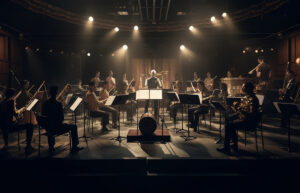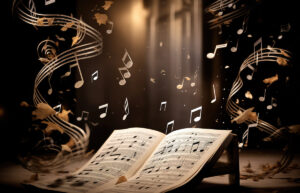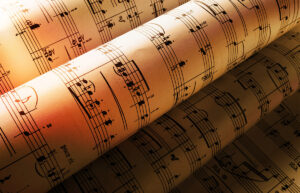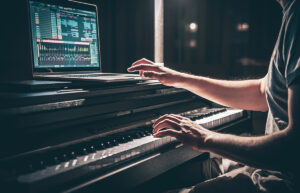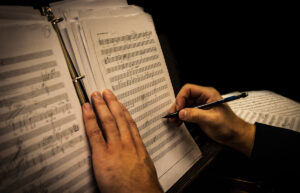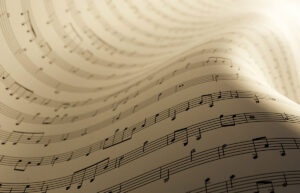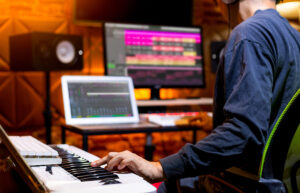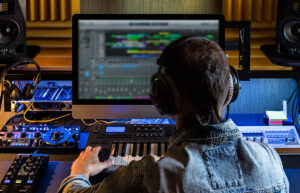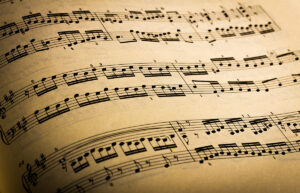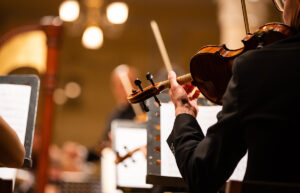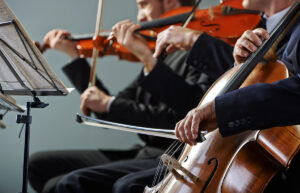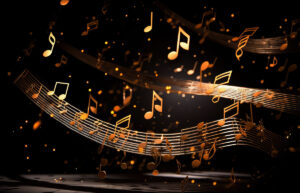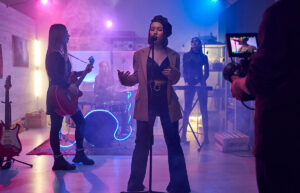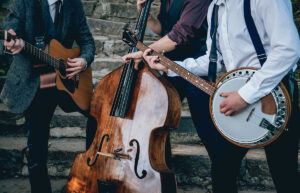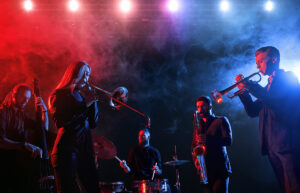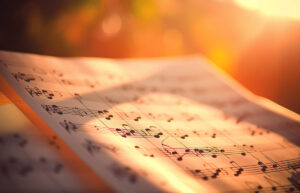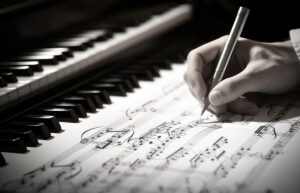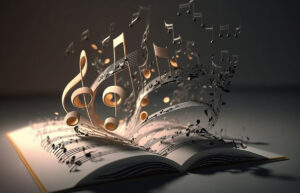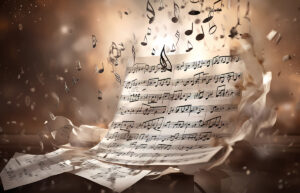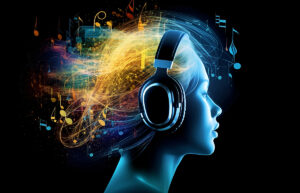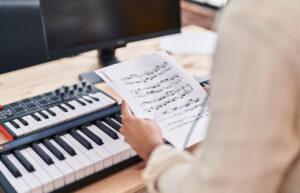What is Secular Music: Meaning, Instruments & Famous Musicians
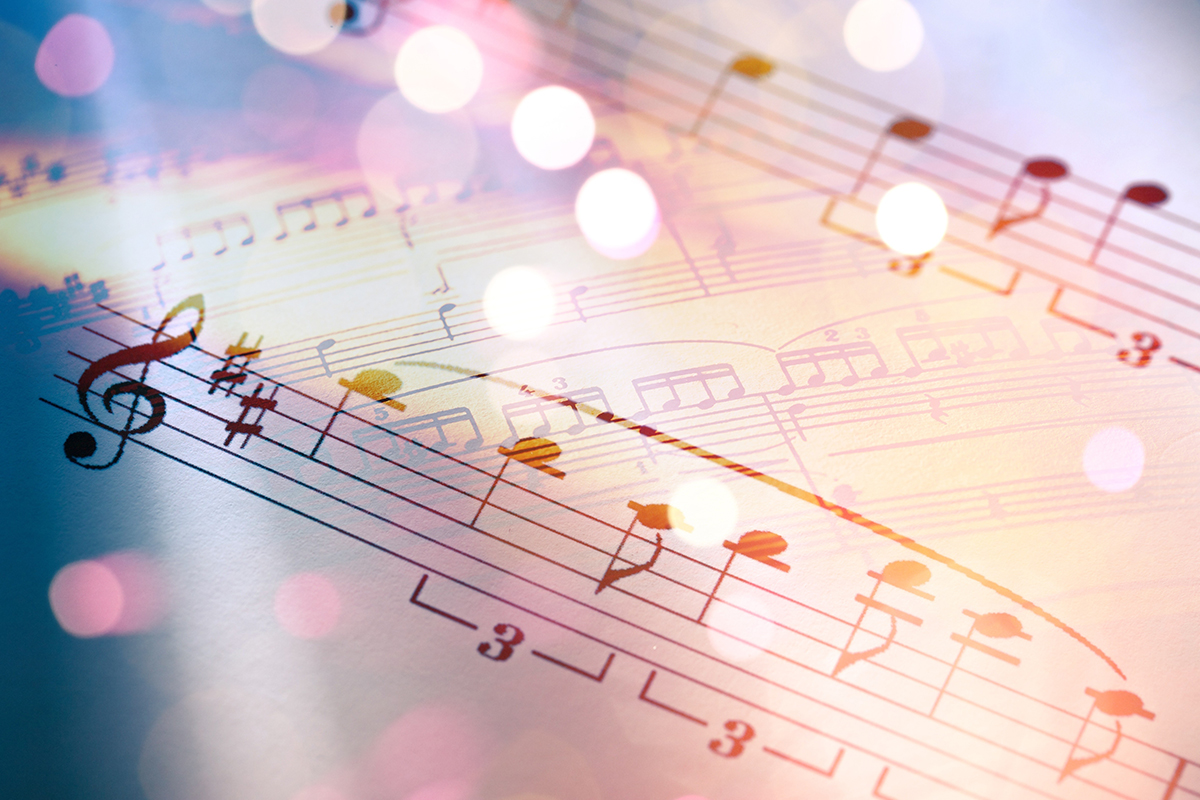
Imagine a vivid kaleidoscope of melodies and rhythms, where songs become the heartbeat of our shared experiences, echoing the tales of love, joy, heartbreak, triumphs, and the whirlwind of human emotions. To me, secular music is the vibrant tapestry that paints our everyday lives with tunes that transcend boundaries, evoking passions, inspiring movements, and harmonizing the symphony of our diverse stories, inviting us all to dance to the rhythm of our collective existence.
Welcome to TheDemoStop, now join the community!
Connect with artists, fans and producers around the world.
What is secular music?
In its simplest form, I would define secular music as music that isn’t tied to religious or spiritual themes. It encompasses various genres and styles that focus on worldly subjects such as love, relationships, social issues, personal experiences, and entertainment, rather than religious or sacred content. This type of music serves diverse purposes, including artistic expression, entertainment, cultural representation, and commercial success.
History of secular music
Secular music began to emerge with a desire to diverge from religious music. In the Middle Ages and Renaissance, troubadours and composers popularized secular songs celebrating love and adventures. The Baroque, Classical, and Romantic eras contributed considerably to secular music by composers exploring emotions and personal expression. In the twentieth century, diverse genres such as jazz, rock, pop, and hip hop emerged, reflecting societal changes and technological advancements, shaping the ever-evolving landscape of secular music.
Genres of secular music
Jazz and blues
Jazz music, born from a fusion of African American and European musical traditions, thrives on improvisation, syncopation, and varied rhythmic patterns. Blues, with its emotive 12-bar structure, serves as a musical expression of life’s trials, hardships, and personal experiences, often capturing the essence of human emotions in its raw form.
Rock and roll
Originating in the 1950s, rock and roll started a cultural revolution, characterized by its high-energy beats, electrifying guitars, and a rebellious spirit. This genre has diversified into numerous offshoots such as classical rock, punk, metal, and alternative rock, each embodying its own unique style and attitude.
Pop and disco
Pop music, known for its catchy hooks and widespread appeal, continually evolves to reflect changing musical trends and tastes. By contrast, disco emerged in the 1970s, dominating dance floors with its infectious rhythms, pulsating beats, and lavish orchestrations, captivating a generation through its vibrant nightclub culture.
Rap and hip hop
Rap, a vocal style delivering rhythmic poetry and storytelling, is the cornerstone of hip-hop culture. Hip hop originated in the Bronx during the 1970s, transcends music to encompass various art forms, fashion trends, dance styles, and a distinct urban ethos, becoming a global cultural force shaping generations and sparking social change.
Impact of secular music on society
Culture and trends
Secular music considerably influences cultural norms, societal attitudes, and trends. It acts as a reflection of societal shifts, mirroring the values, emotions, and experiences of a particular era or community. Through lyrics, melodies, and the artists themselves, secular music molds fashion, language, and behavior, serving as a catalyst for social movements and shaping generational identities.
Censorship and controversy
Secular music often courts controversy and censorship due to its ability to challenge established norms, provoke discussions on taboo topics, or push boundaries. Some songs and artists face censorship or backlash for addressing sensitive issues such as politics, sexuality, or social injustices, leading to debates about artistic freedom, morality, and the influences of music on younger audiences.
Satire and critique
Secular music serves as a platform for artists to express dissent, critique societal structures, and offer satirical commentary on political, cultural, or economic issues. Songs can act as powerful pieces for social critique, shedding light on inequalities, corruption, or other societal problems, sparking conversations and encouraging critical thinking among listeners. Artists often use satire and irony to highlight absurdities or contradictions within society, challenging audiences to rethink prevailing beliefs or behaviors.
Welcome to TheDemoStop, now join the community!
Connect with artists, fans and producers around the world.
Instruments used in secular music
Drums
Drums are foundational in secular music, providing rhythm and a beat to countless genres. They come in various forms, including bass drums, snares, tom toms, and cymbals. Drums add energy, drive, and dynamics to music, often setting the pace and creating the backbone of a song’s rhythm.
Harps
Harps have a long history in secular music, especially in classical, folk, and some contemporary genres. Their ethereal sound, produced by plucking strings stretched across a frame, adds a unique and often enhancing quality of compositions.
String instruments
Instruments like guitars, violin, cellos, and basses are essential in secular music. Guitars, especially electric ones, are prominent in rock, pop, and jazz. Violins and cellos contribute to orchestral arrangements, classical compositions, and various contemporary styles, adding melodic richness and depth.
Woodwind instruments
Woodwinds such as flutes, clarinets, saxophones, and oboes produce sound by blowing air through a mouthpiece. They contribute melodies, harmonies, and textures across genres, from classical and jazz to folk and contemporary music.
Percussion
Apart from drums, percussion instruments such as tambourines, maracas, xylophones, and congas contribute to rhythm and texture in secular music. They add accents, color, and diversity to musical compositions, enhancing the overall sound and feel.
Keyboard instruments
Keyboards encompass a wide range of instruments such as pianos, synthesizers, organs, and electric keyboards. They provide harmonic support, melodies, and a vast array of sounds across numerous genres, serving as foundational instruments in classical, rock, pop, jazz, and electronic music.
Famous secular musicians
Paul Simon
Paul Siomon is a prominent secular musician known for his influential solo career and as one half of the acclaimed duo Simon & Garfunkel. He’s celebrated for his diverse music spanning folk, rock, and world music genres, creating iconic songs like “Bridge Over Troubled Water,” “The Sound of Silence,” and “Graceland”. His music predominantly focuses on everyday life, personal experiences, and societal themes, distinct from religious or spiritual subjects.
Wolfgang Amadeus Mozart
Wolfgang Amadeus Mozart, prolific classical-era composer, contributed extensively to secular music. His compositions encompass operas, symphonies, chamber music, and concertos that were often focused on secular themes, emotions, and storytelling, rather than exclusively religious or sacred content. Famous works like “The Marriage of Figaro,” “The Magic Flute,” and numerous instrumental pieces showcase his mastery in secular musical expression.
John Dunstable
John Dunstable, an English composer from the late Medieval period, is known for his contributions to secular music. He specialized in composing secular songs and instrumental music, including ballades, chansons, and motets, which were not primarily related to religious or sacred themes. His compositions were influential in shaping the musical styles of the time, particularly in the development of early Renaissance music.
Conclusion
What is secular music? Secular music refers to music that is not connected to religious or spiritual themes. It encompasses various genres and styles that focus on worldly subjects like love, personal experiences, social issues, entertainment, and emotions, rather than religious or sacred content.
History of secular music: Secular music diverged from religious music over time. Troubadours in the Middle Ages popularized secular songs about courtly love. Over centuries, secular music evolved through different eras, shaping cultural and societal influences, resulting in the varied genres existing today.
Genres of secular music
- Jazz and blues
- Rock and roll
- Pop and disco
- Rap and hip hop
Welcome to TheDemoStop, now join the community!
Connect with artists, fans and producers around the world.
Impact of secular music on society
- Culture and trends
- Censorship and controversy
- Satire and critique
Instruments used in secular music
- Drums
- Harps
- String instruments
- Woodwind instruments
- Percussion
- Keyboard instruments
Famous secular musicians
- Paul Simon
- Wolfgang Amadeus Mozart
- John Dunstable
FAQs
What is secular music?
Secular music refers to music that is unrelated to religious or spiritual themes, focusing instead on worldly subjects such as love, emotions, everyday life, entertainment, and societal issues.
What are some examples of secular music?
- Bohemian Rhapsody by Queen (Rock)
- I Will Always Love You by Whitney Houston (Pop/Ballad)
- Fly Me To The Moon by Frank Sinatra (Jazz)
- Smells Like Teen Spirit by Nirvana (Grunge/Rock)
- Shape Of You by Ed Sheeran (Pop)
What is the history of secular music?
Secular music slowly became independent from religious music, During the Middle Ages, Troubadours introduced secular songs centered on courtly love. Over time, secular music evolved through various musical periods, shaping cultural and societal influences, resulting in today’s varied music genres.
Where did secular music begin?
Secular music began to gain prominence and distinctiveness during the Middle ages in Europe, particularly through the compositions of Troubadours and Trouveres who popularized secular songs about courtly love and other worldly themes.
How is secular music evaluated?
Secular music is typically evaluated based on various criteria such as melody, harmony, rhythm, lyrics (if present), instrumentation, arrangement, production quality, cultural impact, and audience reception.
What are the different sub-genres of secular music?
- Jazz and blues
- Rock and roll
- Pop and disco
- Rap and hip hop
What are the instruments involved in secular music?
- Drums
- Harps
- String instruments
- Woodwind instruments
- Percussion
- Keyboard instruments
What impact does secular music have on society?
Secular music influences society by shaping cultural norms, trends, and individual identities. It can challenge societal norms, provoke discussions, reflect social issues, and serve as a platform for artistic expression and critique, impacting emotions, behaviors, and societal perspectives.

